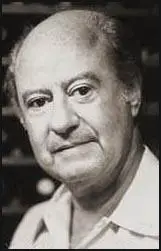Will be looking for new info on these characters
Howard Hunt
Lee Oswald
Cord Meyer
David Morales
George Joannides
William Harvey
Felix Rodriguez
Raphael Quintero
Jesus Angleton
Guy Burgess
Frank Fiorini
Unamed stinking Cubans
View attachment 1090549
Sam Giancana
In 1976, after his retirement, Angleton told an investigator that he knew which mob figures, from the New York and Chicago mafia families, had killed Sam Giancana. He also blamed the Church Committee for causing the death of Giancana and Rosselli, by demanding testimony concerning topics on which the mafia code of silence could not be broken.
This is Robert Maheu, Howard Hughes' right hand man:
In the winter of 1959-60, however, the CIA still thought it could pull off the invasion (of Cuba). But it thought the odds might be better if the plan went one step further - the murder of Fidel Castro. All the Company needed was someone to do the dirty work for it. Professional killers. A gangland-style hit.
It was then that the CIA conceived the notion to let the mobsters do it themselves. They'd had a grudge against Castro ever since he'd forced them out of the Havana casinos. It was even rumored that Meyer Lansky had put a million-dollar bounty on Castro's head. CIA Director Alien Dulles passed the ball to his deputy director, Richard Bissell. Bissell handed off to the CIA security chief. Colonel Sheffield Edwards. And then I received the call...
Though I'm no saint, I am a religious man, and I knew that the CIA was talking about murder. O'Connell and Edwards contended that it was a war - a just war. They said it was necessary to protect the country. They used the analogy of World War II: if we had known the exact bunker that Hitler was in during the war, we wouldn't have hesitated to kill the bastard. The CIA felt exactly the same way about Castro. If Fidel, his brother Raul, and Che Guevara were assassinated, thousands of lives might be saved.
But in my mind, justified or not, I would still have blood on my hands. I had to think about it. The deal carried a pretty big price tag. I kept thinking about my family. What kind of danger would it put them in? If anything went wrong, I was the fall guy, caught between protecting the government and protecting the mob, two armed camps that could crush me like a bug....
Rosselli's first response was laughter. "Me? You want me to get involved with Uncle Sam? The Feds are tailing me wherever I go. They go to my shirtmaker to see if I'm buying things with cash. They go to my tailor to see if I'm using cash there. They're always trying to get something on me. Bob, are you sure you're talking to the right guy?"
When I finally convinced Rosselli that I was serious, very serious, he sat staring at me, tapping his fingers nervously on the table. I didn't want to pull any punches with the man, so I was totally up-front about the conditions of the deal.
"It's up to you to pick whom you want, but it's got to be set up so that Uncle Sam isn't involved - ever. If anyone connects you with the U.S. government, I will deny it," I told him. "If you say Bob Maheu brought you into this, that I was your contact man, I'll say you're off your rocker, you're lying, you're trying to save your hide. I'll swear by everything holy that I don't know what in hell you're talking about."
Rosselli hesitated at first, but then agreed. Many people have speculated that Johnny was looking for an eventual deal with the government, or some sort of big payoff. The truth, as corny as it may sound, is that down deep he thought it was his "patriotic" duty.
Understand that the world was quite different then. The Cold War was raging. Only months before, Francis Gary Powers had been shot down while flying his U-2 reconnaissance plane over the Soviet Union. The relationship between Washington and Moscow was at an all-time low, with Soviet Premier Khrushchev going so far as to openly call President Eisenhower a liar on several occasions.
Once the decision was made, it didn't take Rosselli long to put his plan into motion. On October 11, 1960, we took off for what would be the first of many trips to Miami. We booked ourselves into the Kenilworth Hotel, selected because Arthur Godfrey did his TV show from there. In Miami, Johnny introduced me to two men who would help us - "Sam Gold" and "Joe." Sam was Johnny's backup man; Joe would be our direct contact in Cuba. These weren't ordinary mob lackeys. Johnny didn't bother to tell me that "Sam" was Sam Giancana, his boss within the Mafia and the chief of its gigantic Chicago operation. Or that "Joe" was Santos Trafficante, former syndicate chief in Havana, and the most powerful Mafia man in the South.
I later learned that Johnny didn't just need a little help from these men, he needed their okay. Trafficante was necessary to get Castro because he had the connections inside Cuba, and Giancana was necessary to get Trafficante, because Trafficante had the stature of a "Godfather," and only a man of equal stature - like Giancana - could approach him for help. Johnny couldn't do it on his own. Both were among the ten most powerful Mafia members - a fact I learned only after seeing their pictures in a magazine soon after meeting them.
Robert Maheu was born in Waterville, Maine, in 1918. After graduating from the College of the Holy Cross, Worcester, in 1940, he joined the Federal Bureau of Investigation. In 1947 Maheu established his own investigative company. Maheu also worked for the Central Intelligence Agency.

spartacus-educational.com

